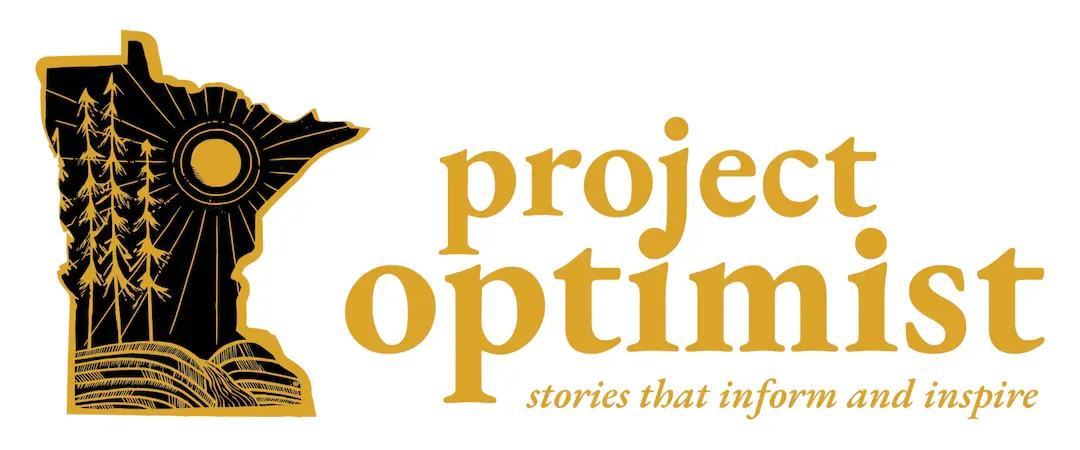How East African politicians are growing a coalition in St. Cloud
To explore the challenges and opportunities in local government for the Somali American community, St. Cloud Somali Community Radio and Project Optimist invited Hassan Yussuf, Abdi Daisane and Omar Podi to share their experiences and insights.
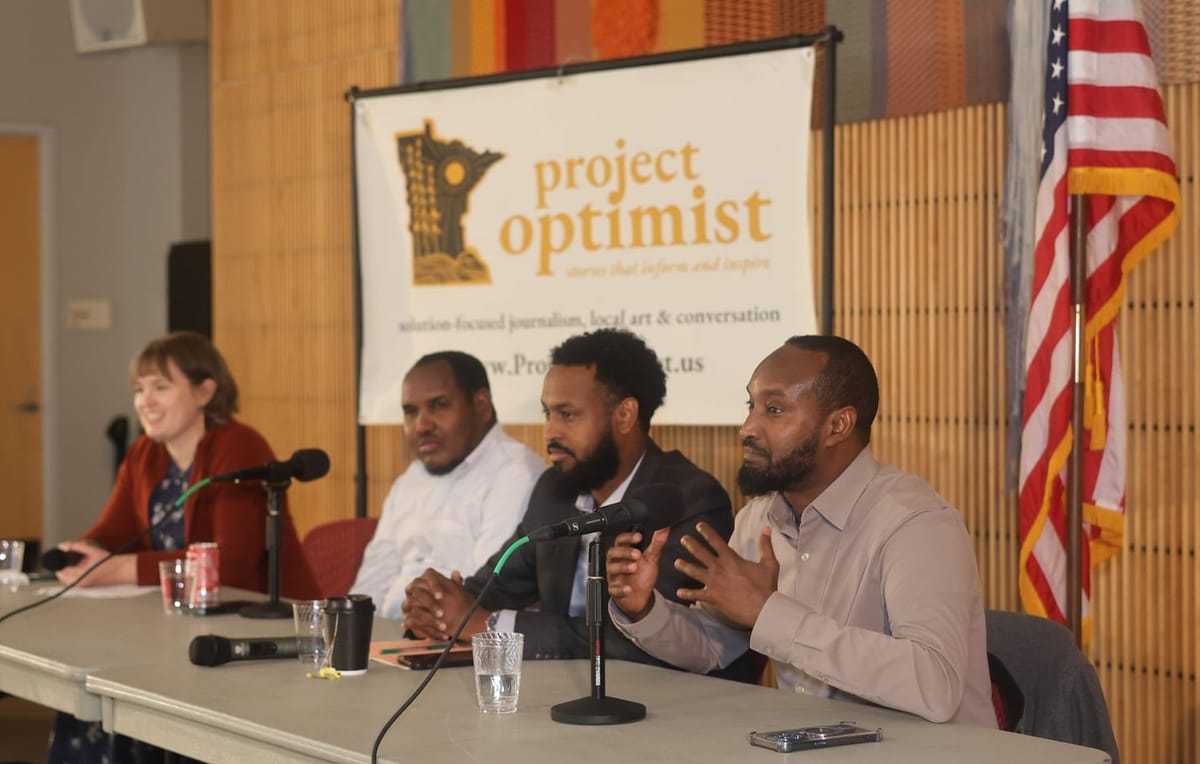
ST. CLOUD – Members of the East African community first ran for office in the St. Cloud area in the early 2010s, about 12 years ago.
Since then, Somali American candidates have successfully fundraised and built coalitions in St. Cloud. They have won primary elections and endorsements. But they still haven’t won a seat in a general election.
“I ran for City Council twice. One time I lost by 0.7%. And I also did run for school board. These are two institutions that we have a lot of stake in and representation is very important for us there,” said Hassan Yussuf, during a panel Project Optimist and the St. Cloud Somali Community Radio co-hosted on Somali Americans and politics in early October.
Students of color make up the majority in the St. Cloud school district. The 2022 Minnesota Student Survey shows that 24% of 5th grade students and 26% of 8th-graders identified as Somali or Ethiopian. In the city of St. Cloud, about 6% claim Somali heritage, according to an APM Research Lab analysis of census data. Refugees from Somalia began to arrive in Minnesota in 1992 and have gathered in the Twin Cities, St. Cloud, and beyond.
To explore the challenges and opportunities in local government for the Somali American community, St. Cloud Somali Community Radio and Project Optimist invited Yussuf, Abdi Daisane and Omar Podi to share their experiences on Oct. 11, 2025, at the St. Cloud Library. They discussed issues with media representation during their campaigns as well as partisanship and civic engagement in the community.
Last year Daisane ran for state House District 14A and Podi ran for an at-large seat on St. Cloud City Council.
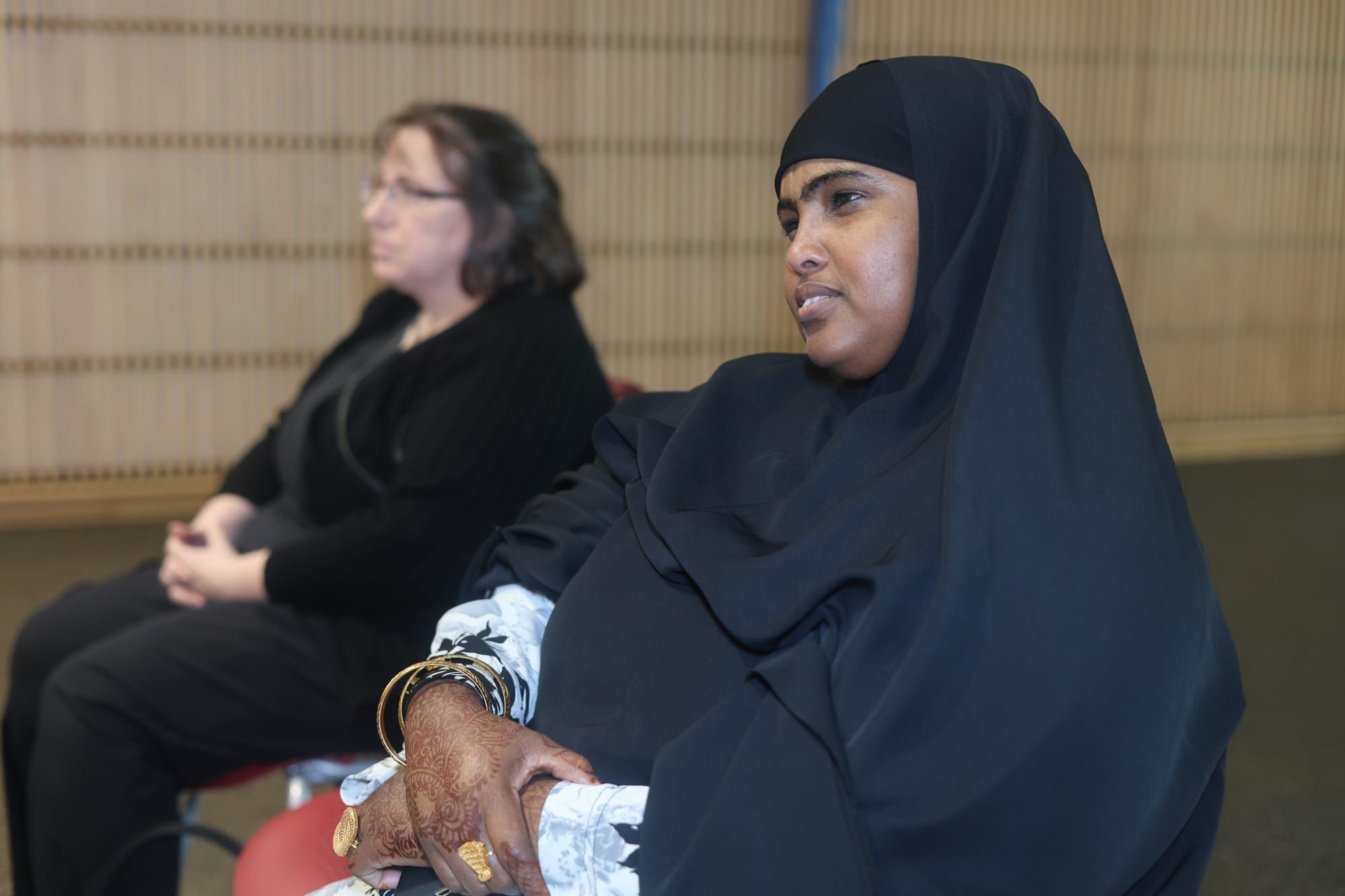
Era of firsts started with Rep. Ilhan Omar
St. Cloud City Council Member Hudda Ibrahim became the first Somali American to serve in local office in 2024. She was appointed to the council to fill a vacancy when Mayor Jake Anderson took on the executive role.
Abdi Daisane became the first Somali American, DFL-endorsed House candidate in central Minnesota last year in his campaign for District 14A, which includes the southwestern part of St. Cloud.
Elsewhere in Minnesota
- In 2024, Mayor Nadia Mohamed became the state’s first Somali American mayor after being elected executive of St. Louis Park in fall 2023.
- In 2020, Sen. Omar Fateh became the first Somali American elected to the state Senate where he represented District 62 which includes part of south Minneapolis. (Fateh is currently running for the Minneapolis mayoral seat.)
- In 2018, Rep. Ilhan Omar became the first Somali American elected to Congress on behalf of the state’s 5th District. In 2016, Omar became the first Somali American, lawmaker-elect in the U.S. when she was voted to represent state House District 60B.
“There’s a need for representation. So when you see Somalis rallying around individuals that look like them, it’s not coming from somewhere bad. It’s coming from the need for representation, the need for seeing someone who looks like them, who is representing the community,” Daisane said. “It’s a pride that they want to feel, and I think that’s fair for any community to feel.”
Don’t pigeon-hole East African candidates
Candidates know that they cannot only represent the needs of the refugee community or East African residents. Yet panelists said they feel that the news media constantly emphasizes their ethnicity and fails to cover positive angles or general announcements about their campaigns.
Podi had a made up-quote attributed to him. Daisane told of articles that framed him in a negative light – about his business, about fundraising and donations from out of state.
Yussuf said he’s never seen a candidate identified by their German heritage.
“When a Somali person runs for office, mostly they are painted a picture of representing the minority, representing the East African community. But that’s not the case,” Yussuf said. “That may be their base. That’s where they get their most votes and support. But that’s not the case. They are running to represent each and every person in that district, in that city, in that place.”
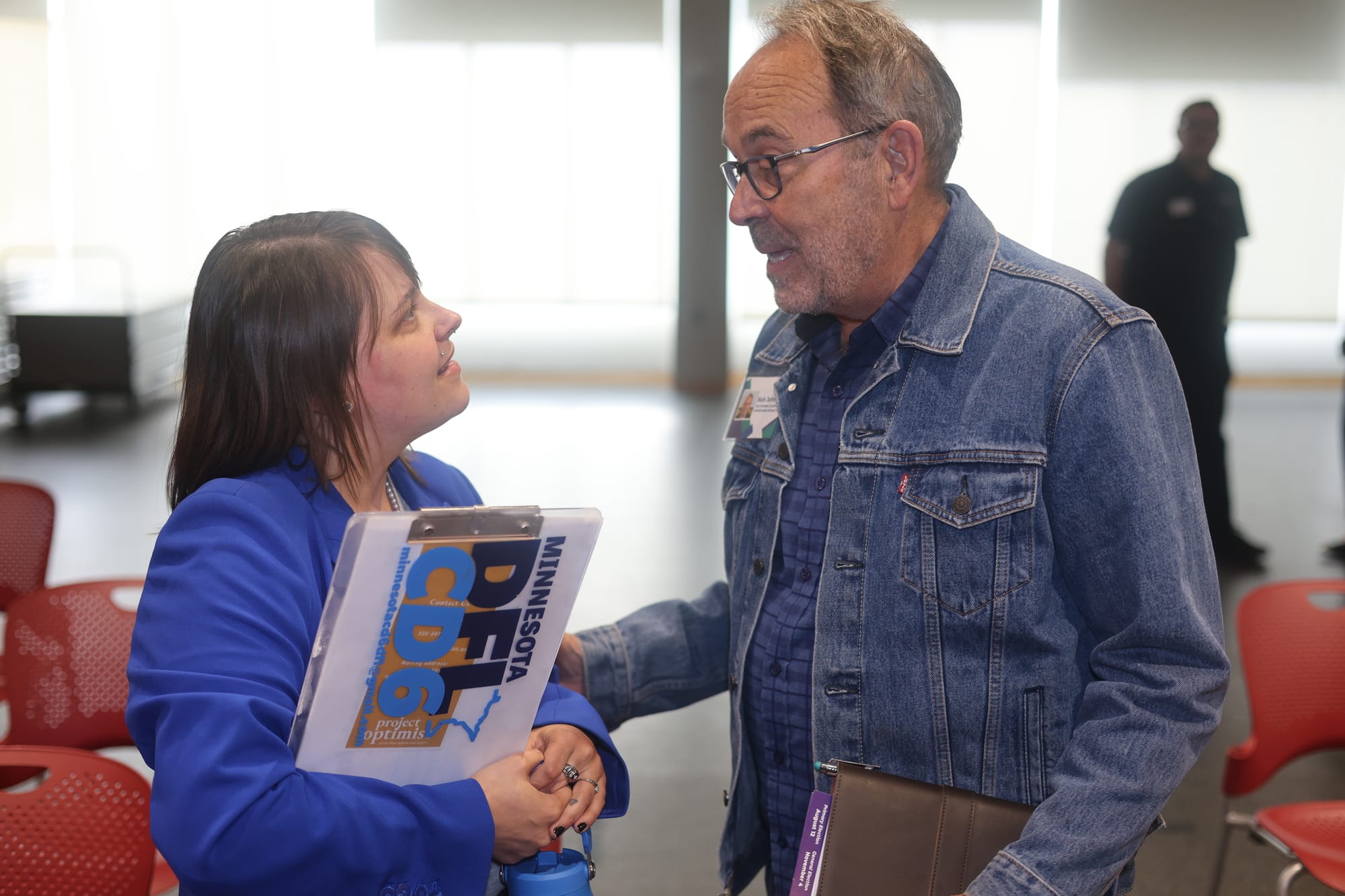
Daisane plans to run to represent District 14A again in 2026 and pointed to the range of endorsements on his campaign website.
“That was me building [a] coalition, making sure that I have a bigger, wider support, not just from East African communities,” Daisane said. “My campaign was not focused, and it’s never been focused, to Somali American voters. It focused to everyone.”
The AP Stylebook cautions reporters and writers against overemphasizing someone’s race or ethnicity: “Often, it is an irrelevant factor and drawing unnecessary attention to someone’s race or ethnicity can be interpreted as bigotry.” Exceptions include if the story is about an incident involving race, if the suspect in a crime is at large, or if the coverage features a historic event – such as the first Black person elected to a seat.
 Project OptimistJen Zettel-Vandenhouten
Project OptimistJen Zettel-Vandenhouten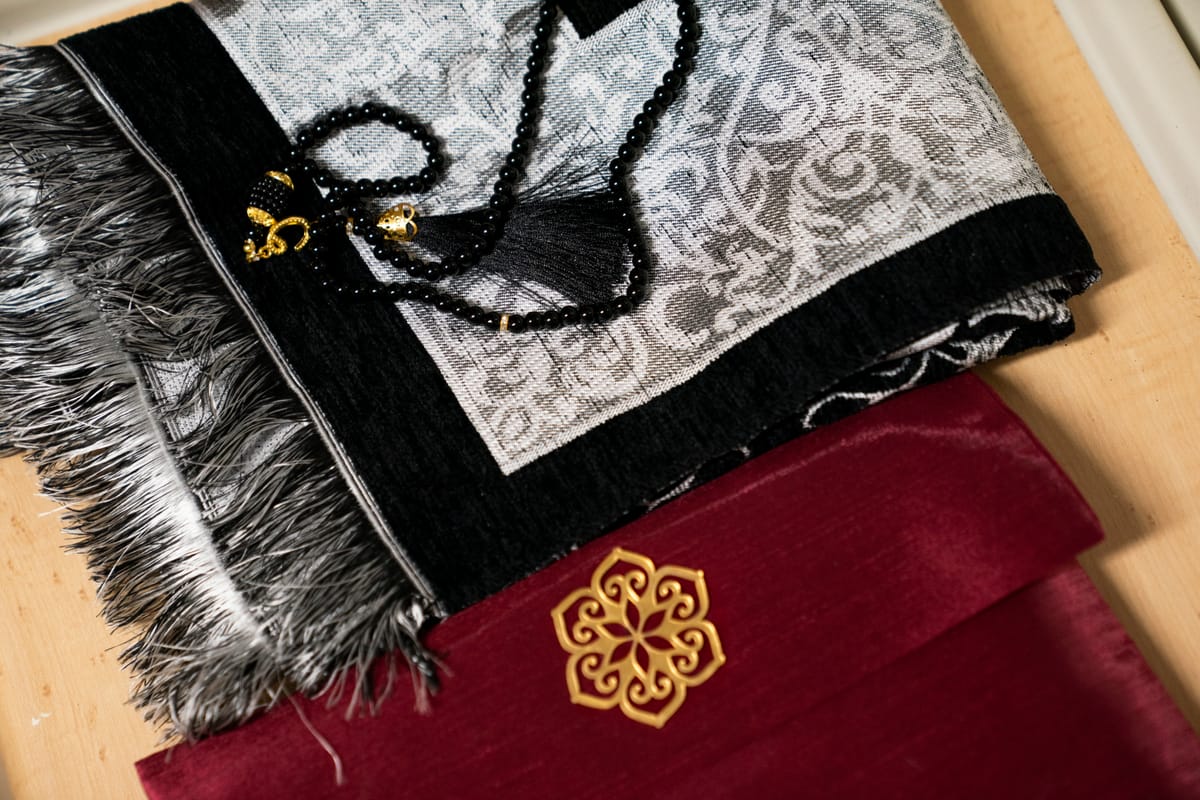
Recognize diversity within the East African community
Somali communities have tribal politics within them, Daisane said. Tribal in a literal sense and in a metaphorical sense.
There are also community organizers within the East African community that have worked for decades to build consensus within the community and make it a formidable voting block.
Omar Podi is one such organizer. He has run for a nonpartisan seat on the St. Cloud City Council, and he has supported DFL efforts in the area, knocking on thousands of doors. His coalition includes 4,800 immigrants and close to 10,000 Democrats, he said. Something that doesn’t work though, is a party representative sent from the Twin Cities to support DFL campaigns here.
“East African community never trusts those who come from the outside,” Podi said. “We only need financial support. We don’t need for you to send us [an] ambassador to St. Cloud."
Some feel the DFL has not delivered for the East African community citing education achievement gaps and housing challenges. Black students have a lower graduation rate compared to the average in the St. Cloud school district, for example.
Community organizer Fatumo Ukash has campaigned for the DFL for almost 20 years with hopes for better housing and education for her kids, she told the panelists at the forum. She said her children, born in St. Cloud, still do not have the same opportunities as her neighbors’ children who are white.
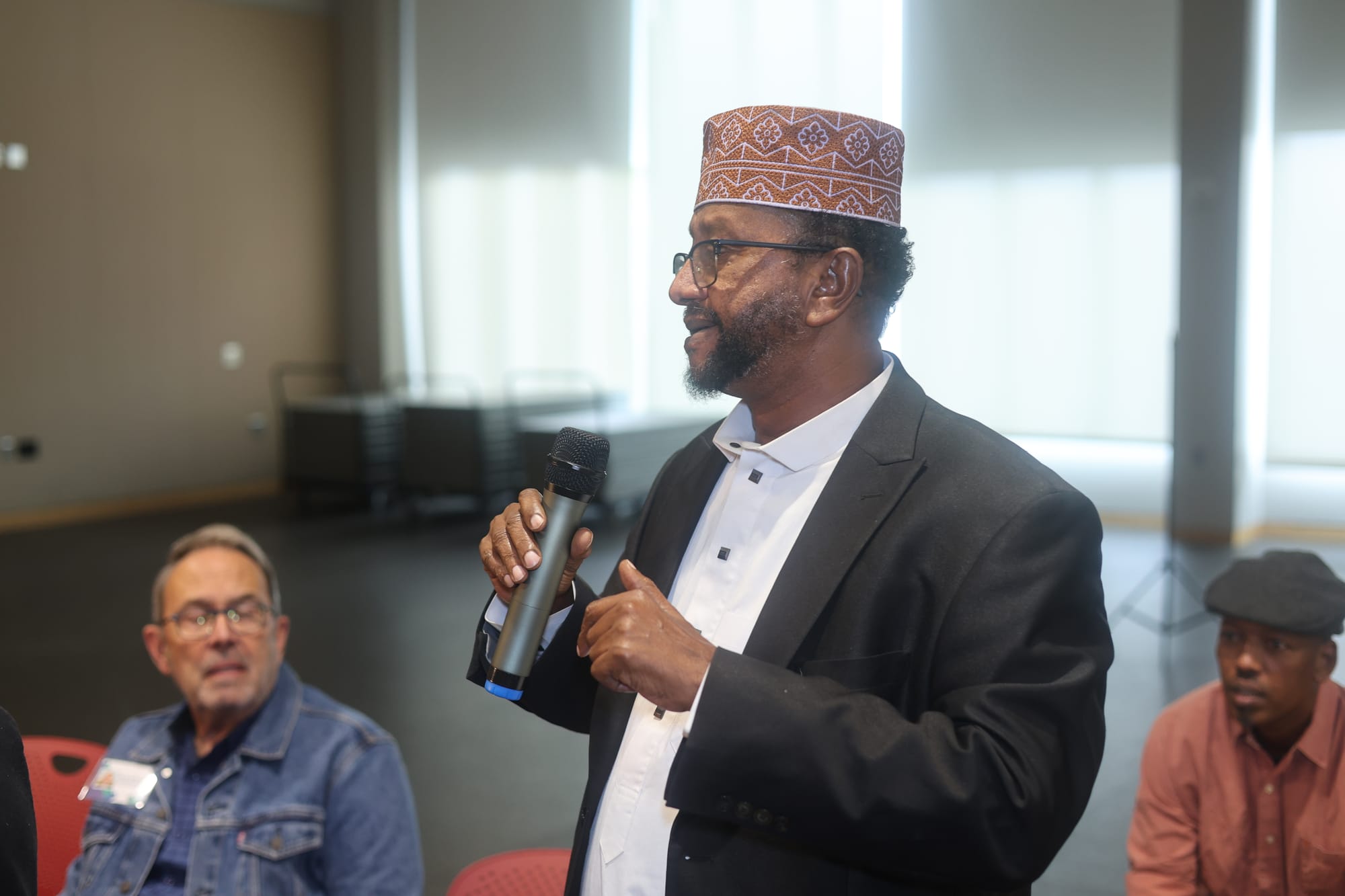
Yussuf said the DFL party should not assume it has support from all in the East African community. He suggested a Somali American would have a good chance running as a Republican in District 14B, which includes the north and east part of St. Cloud.
“As long as I can remember, the community has voted for the Democratic party, in many cases, without a good reason,” Yussuf said. “The conversation is changing in many ways in which people are realizing that this party has taken our votes for granted without them bringing back anything into the community.”
Fixing that problem might involve structural changes within the party and visible benefits in the community, Yussuf said.
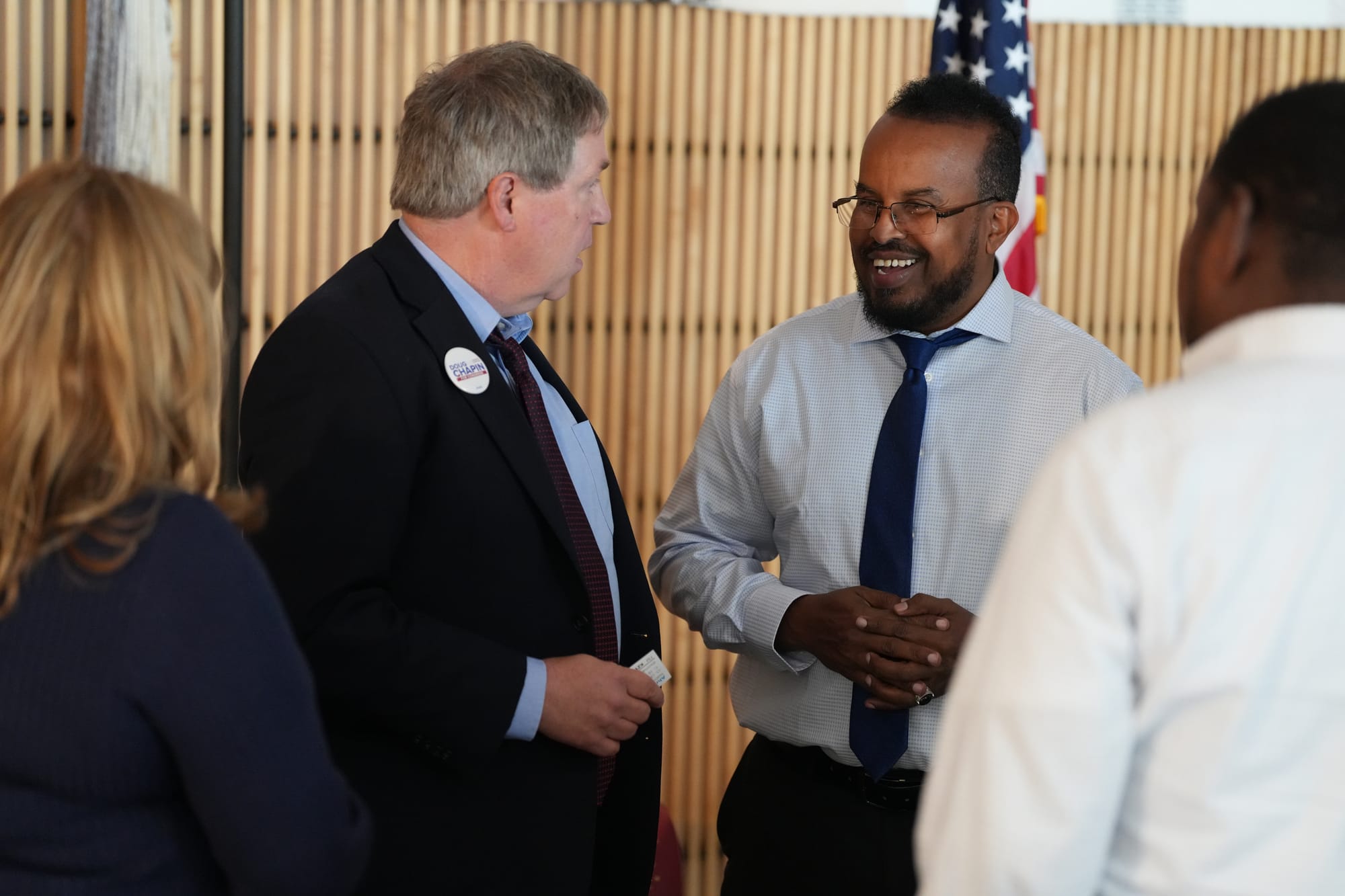
Ramp up civic education
Even though the Somali American voting block is a significant force, community organizers found a need for more education in last year’s elections.
Omar Podi and Hudda Ibrahim were on the ballot with 14 other candidates in the August 2024 primary election for three open St. Cloud City Council at-large seats. Voters could choose three candidates in the primary and general elections, but East African voters expressed confusion and assumed Podi and Ibrahim were opponents. Daisane was also on the ballot, running for state Legislature, and some people thought he was also competing against Podi and Ibrahim, he said.
“The biggest issues are, this is a very disenfranchised community, they don’t understand electoral systems. They don’t understand democracy and democratic elections,” Daisane said.
 Project OptimistJen Zettel-Vandenhouten
Project OptimistJen Zettel-Vandenhouten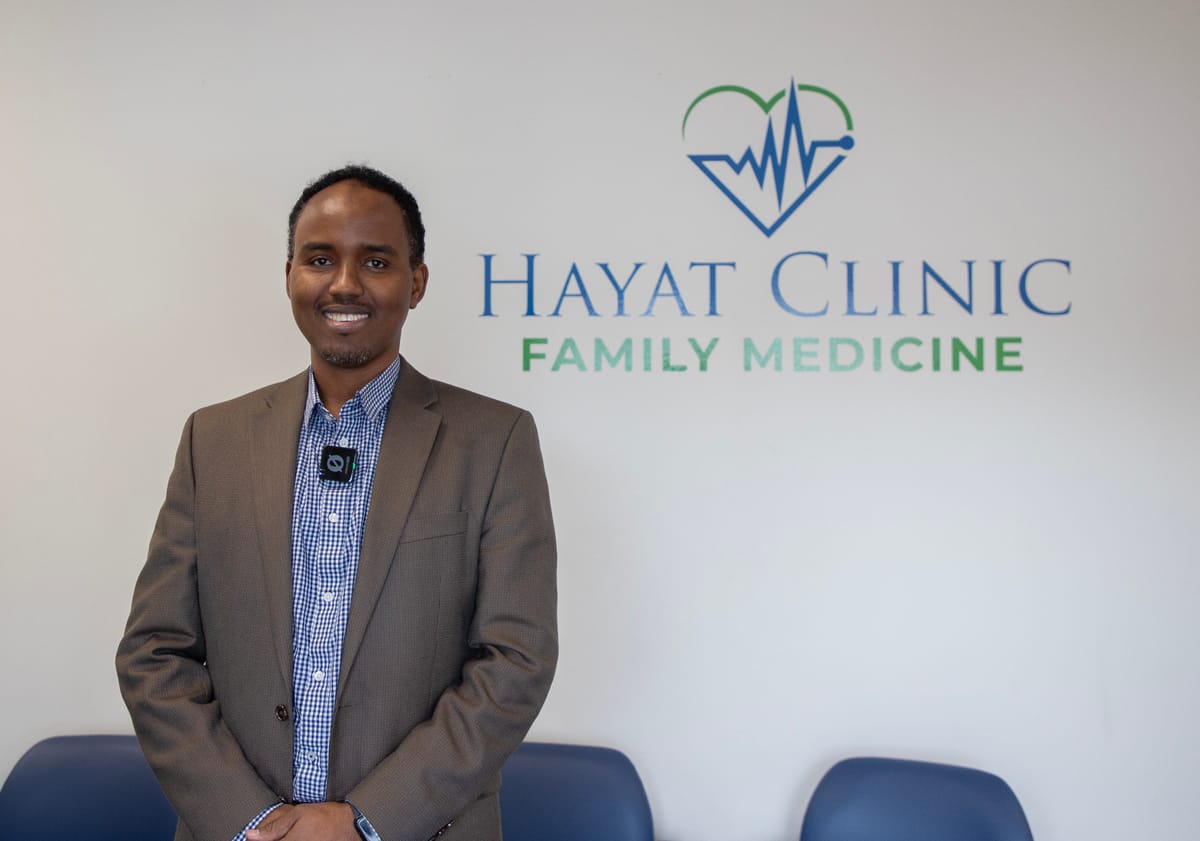
One attendee asked the panelists: What is the goal? And what’s the plan to get there? It brought the conversation back home, to the local community in St. Cloud.
“To me the goal is to have our children become successful and better than their parents,” Yussuf said. “We want our children to have better education, better income economically as well. So that is the goal. I think how we get there is by coming together. And by supporting each other and by changing the structures that have led our children into prisons and changing the structures in the system that have led our children to not finish high school.”
This story and the forum was supported by a grant from Press Forward Minnesota. Ahmed Abdi of St. Cloud Somali Community Radio co-organized the event and co-reported this story. Becca Most edited this story. Nora Hertel fact-checked it.
Sign up for Project Optimist
Solution-focused news, local art, community conversations
No spam. Unsubscribe anytime.
